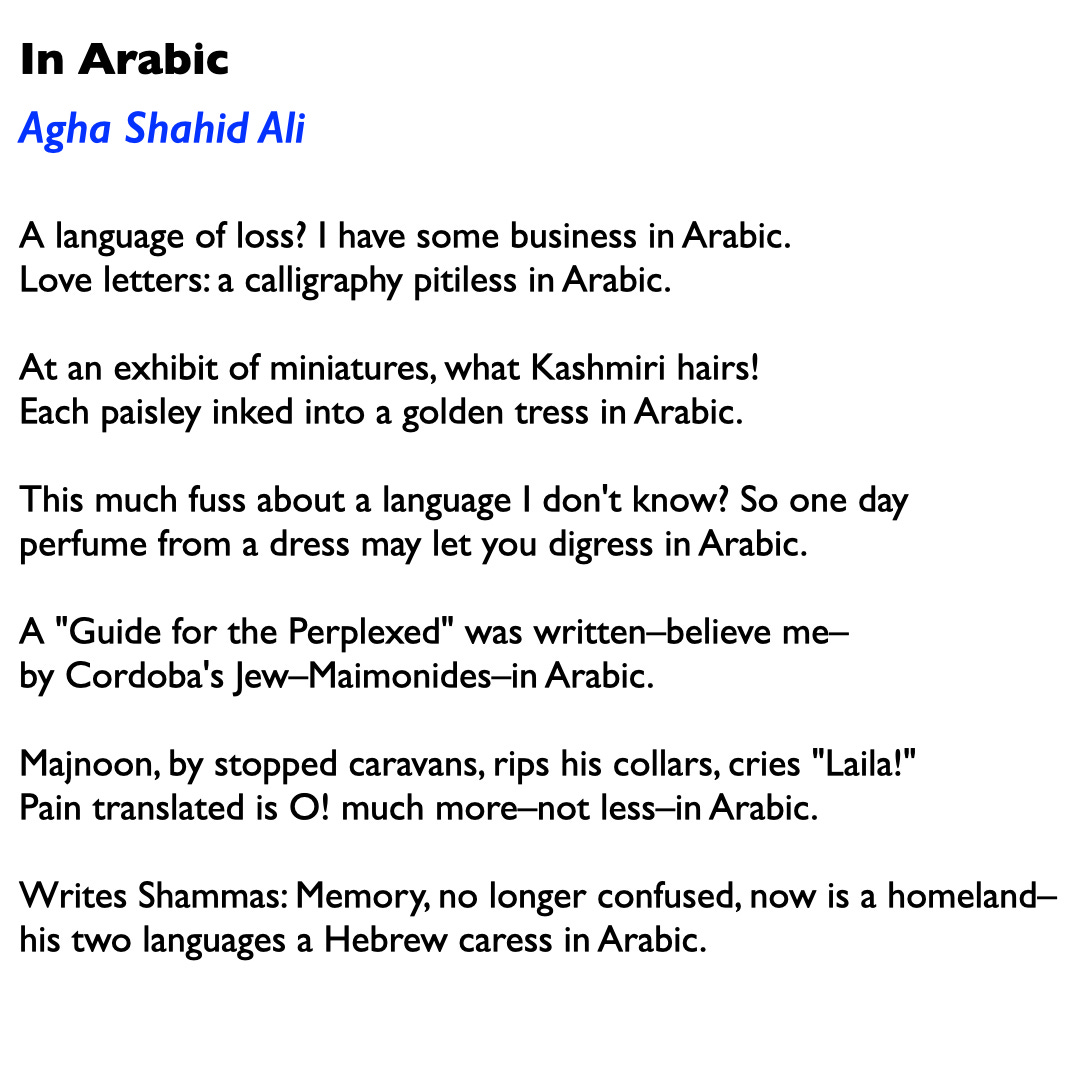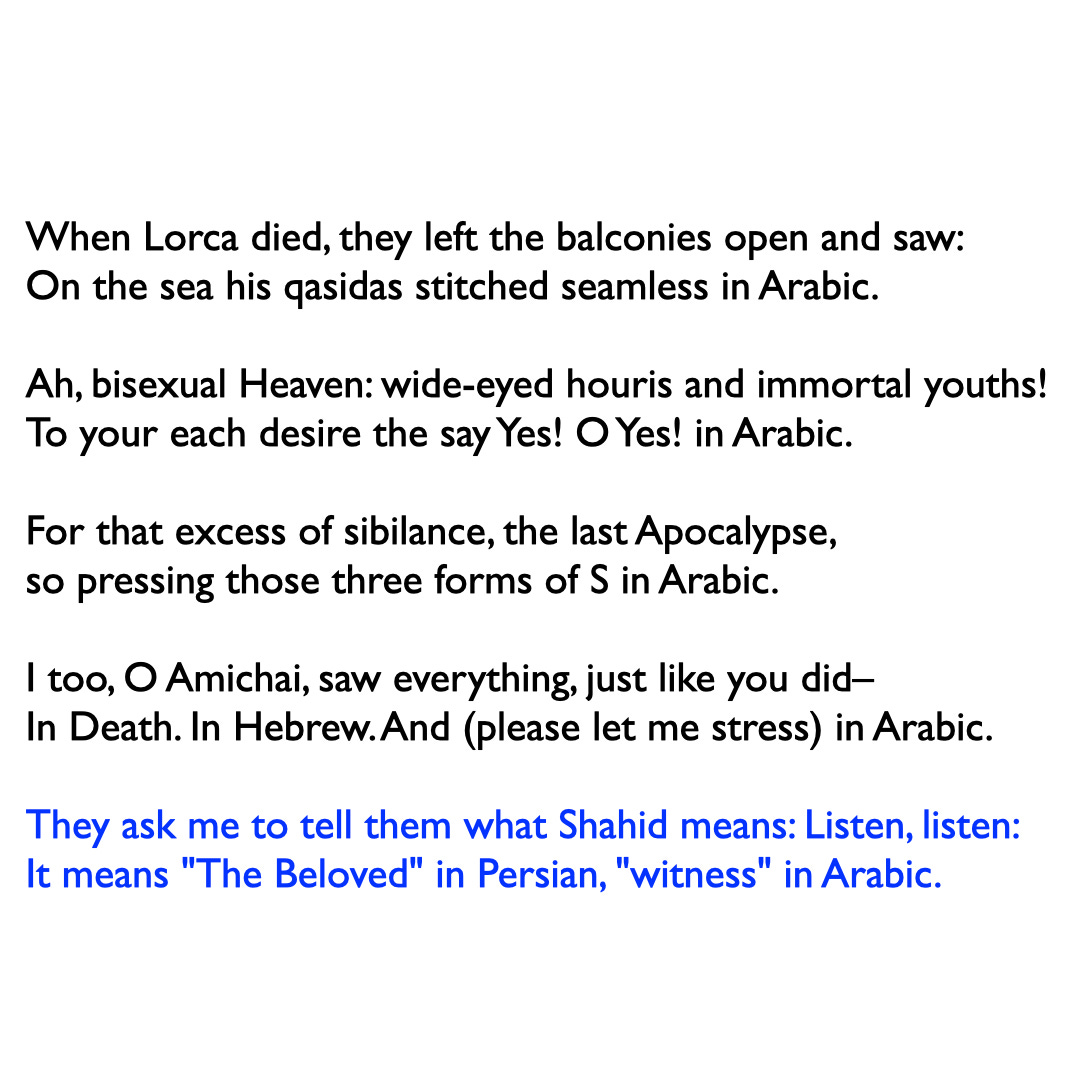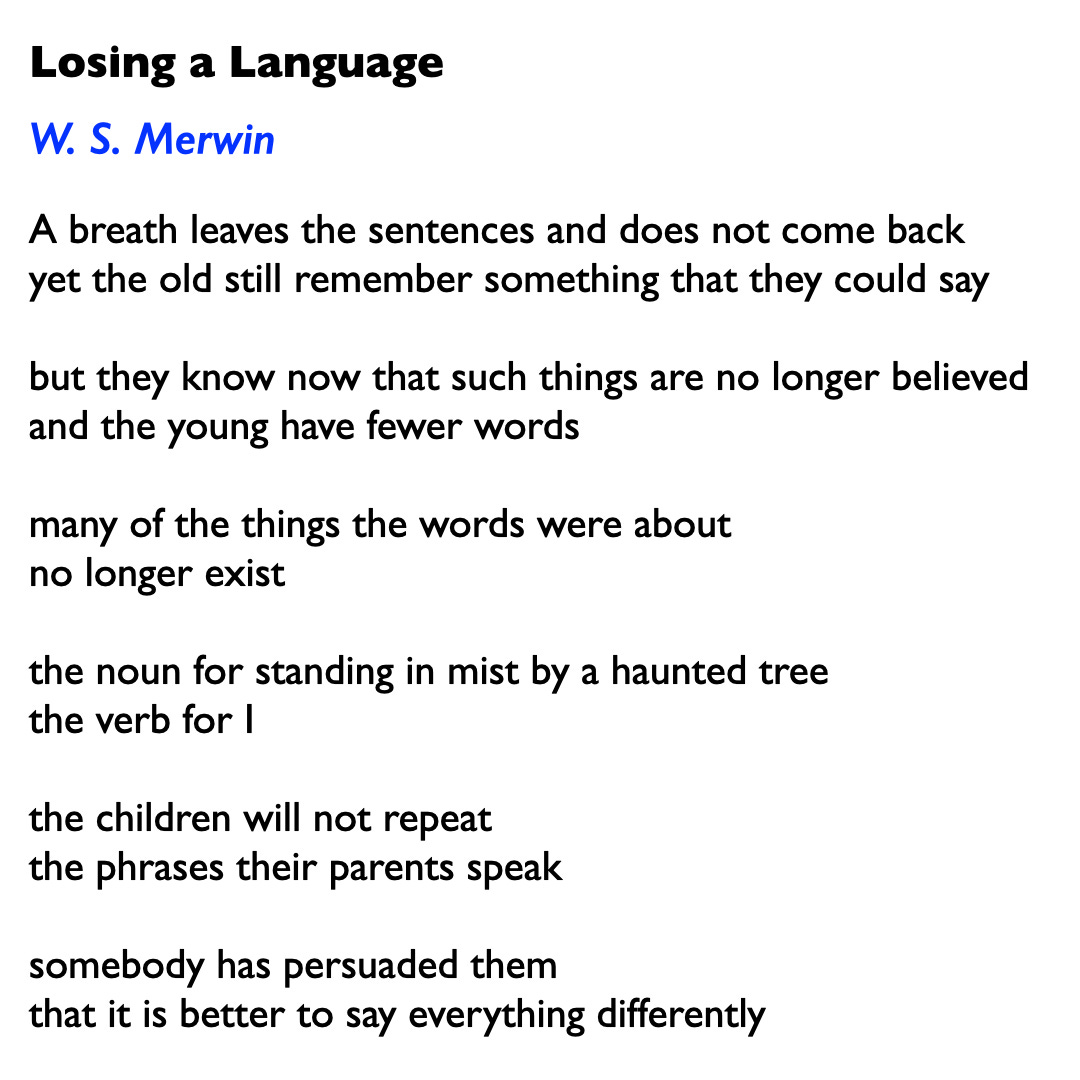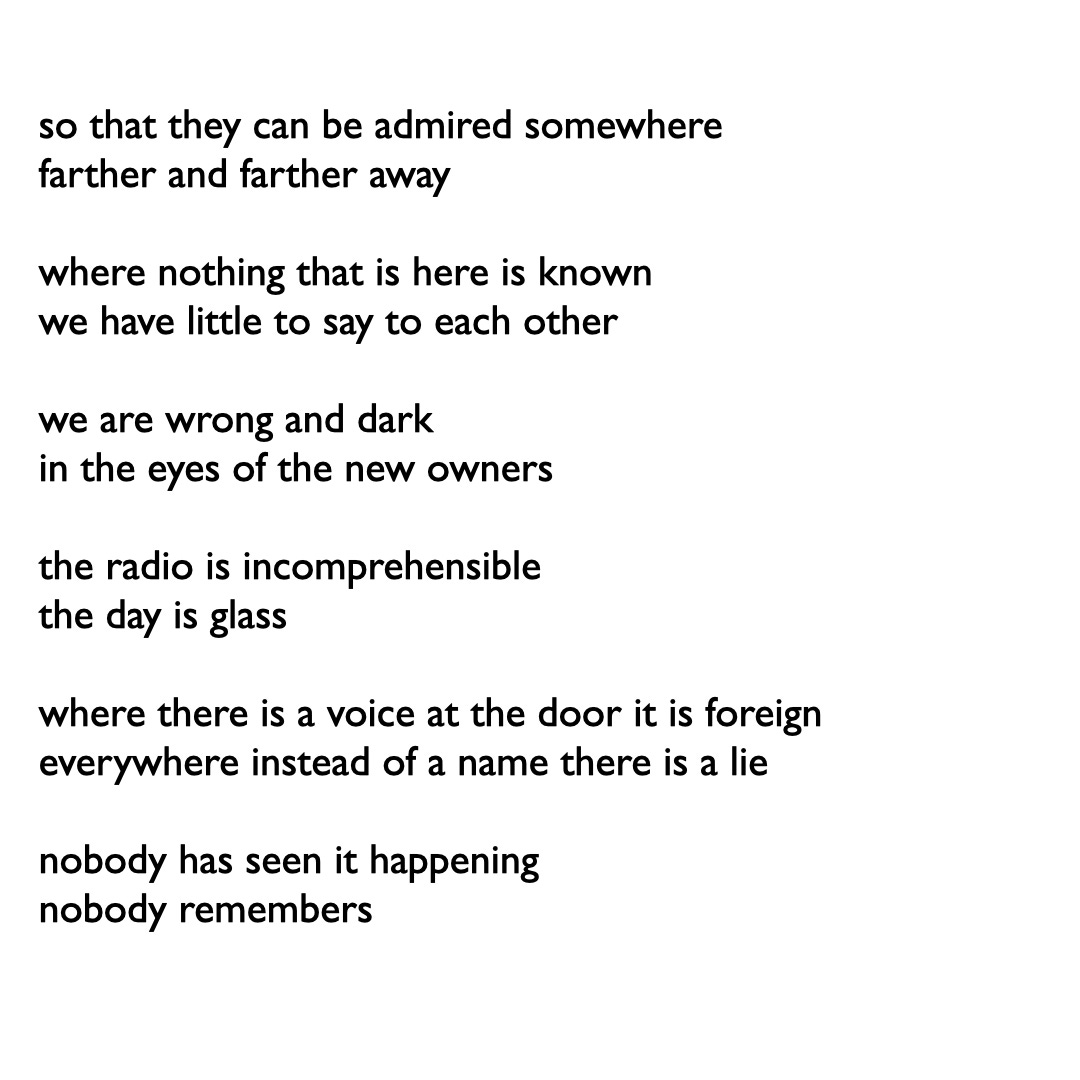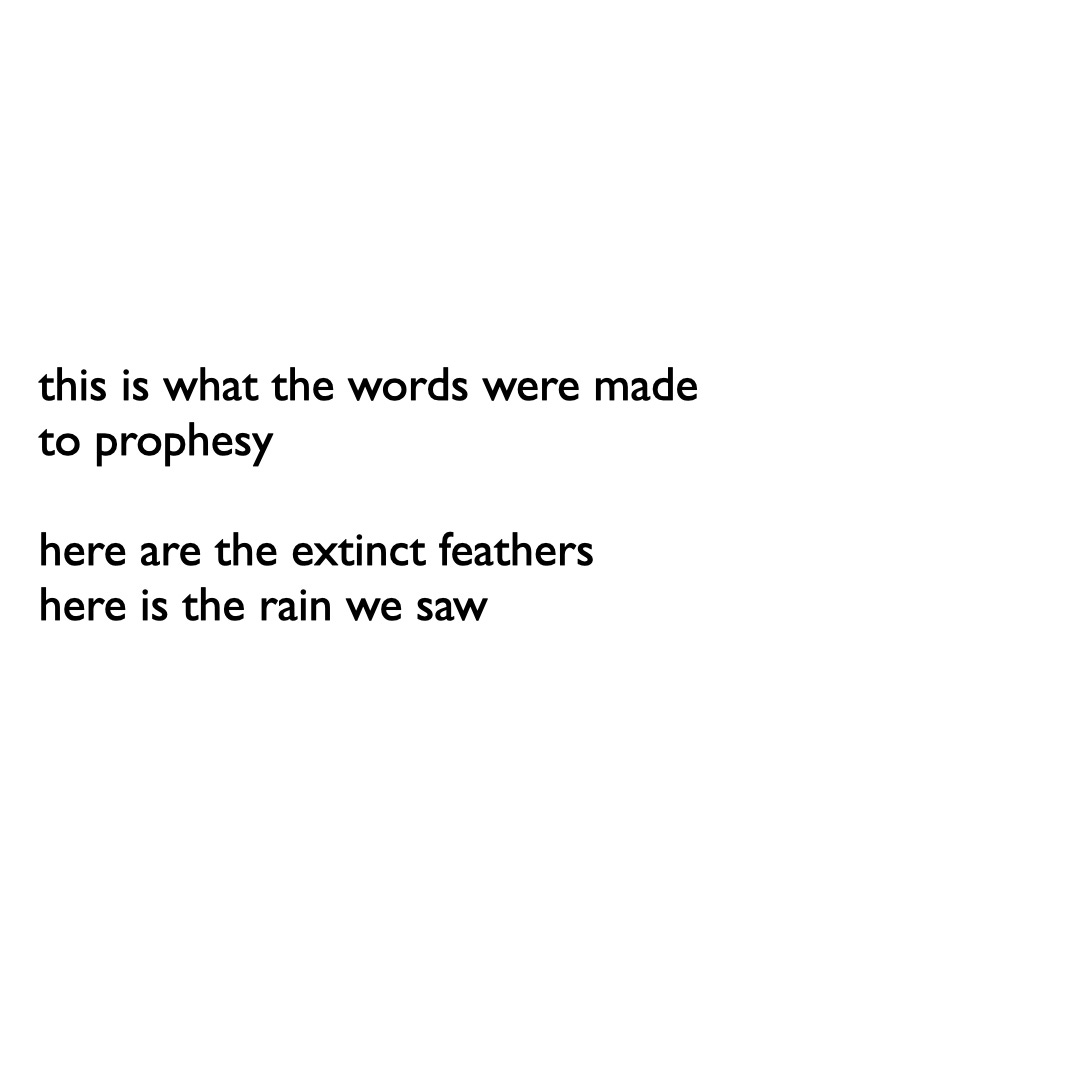2 poems about Language
Agha Shahid Ali, W. S. Merwin
Language settles in the body, recruiting time, in its persistent search for a home. Sometimes memory comes in the way of this encroachment. The dark crack of the self is filled with vermin from conflicting realities, but language is that pool at the bottom, whose presence is recorded by the occasional thump, or a reflection of a place that we have once visited, but cannot remember anymore.
The body remembers, and sometimes it rescues old experiences with new words. Memory is written with the language of the senses. It creates a kind of map - a sensorium that we use to navigate our destinies with the spoor of old adventures whose tone changes with each retelling. Learning the language of a place is not very different from cartography, except that there is more liberty in the triangulation of character onto setting. We create images of people and places, based on our personal biases, our experiences, even our wounds. The map is definitely not the territory, far from it. But this is what makes it magical.
Do you know how to ask someone for water, in a language that is not your own?
I am conscious of how my desires wander unhinged, and my thoughts float homeless between the words that I know, and the words that I don’t, in a slightly unfamiliar language (a language that is not English, for instance). So if I know the word for tea in Kannada, and for food, but not the word for small change (incidentally it is chillare, both in Kannada and Tulu), I might keep quiet and thrust a hundred rupee note into a shopkeeper’s hands making some joke about demonetisation, to hide my nervousness about not having the right means to make a polite enquiry.
I have begun to notice these subtle ways in which I let language shackle thought, but also how it frees, and allows you to become friends despite its illusiveness. When you go to a new place and are forced to trade with the currency of language for even the smallest, most mundane things, it is the accent that you learn first, not the words themselves. This is my experience, that I have understood in retrospect.
So I may not know the word for ‘cafe’ or even ‘eating place’ which has to become ‘meeting place’ in a conversation with a friend from Hyderabad who I am meeting after years, but I have understood the pathways of dakhni/urdu/hindi enough to convey my enthusiasm for the rendezvous, with a careless, broken ‘main aaroo ustad’ or a ‘tension nako’. (tension would have become traas in bambaiyya).
The languor in that language is infinite and it has so much space that it turns the cut-to-cutness of bombay hindi into lazy finesse. A friend taught me a useful phrase that is ensconced in the slow afternoons, the eternity of kind-hearted banter, and the post-consumption empty surrender of qubani ka meetha. It is a response, actually, to say - Kya karra tu? or Kya hona?
Kya bhi Nahi
If there is space for verse to fill the vaccum of that last conversation, then let me fill it with some poems about language?
First a poem by beloved Agha, on whose death anniversary, I was unable to make a post this time.
Then Merwin bhau.
A few more language poems from the archives: Raju Tai’s New Language, Meena Kandasamy’s Muligatawny Dreams, Jeet Thayil’s Malayalam, 2 Poems from Raymond Antrobus’s Perseverance, Danusha Laméris’s Insha’Allah
If the poems and the commentary resonate, do consider ‘buying me a coffee’.
(Matlab, if you can’t, that’s also fine, obviously. This is a free newsletter)
Note: Those, not in India, who’d like to support the work I do at Poetly, do write to me - poetly@pm.me. (Paypal has left the building)
Thanks for reading Poetly! Do subscribe if you are not reading this in your inbox. Cheers!

